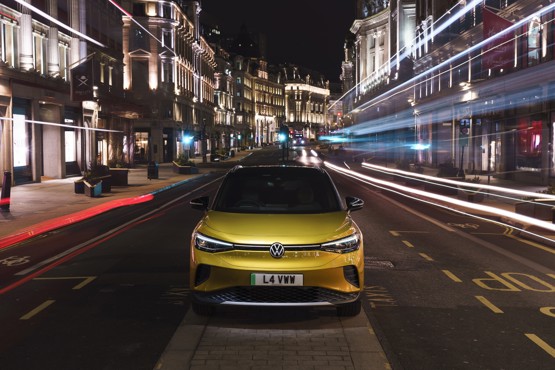Volkswagen has confirmed it has put its plans to introduce a direct-to-consumer agency style retail model on hold for the “short to medium term” following a strategic review.
It means a return to the franchised model for the majority of its brand for battery electric vehicle (BEV) sales as of April 1 this year.
However, Cupra will still remain on the retail BEV agency model since it has been a “frontrunner brand for agency”.
Volkswagen has confirmed it has put its plans to introduce a direct-to-consumer agency style retail model on hold for the “short to medium term” following a strategic review.
It means a return to the franchised model for the majority of its brand for battery electric vehicle (BEV) sales as of April 1 this year.
However, Cupra will still remain on the retail BEV agency model since it has been a “frontrunner brand for agency”.
VW said that while its agency plans are on hold, it still intends to move to a new way of working as part of its long-term strategy.
It will push ahead with the switch to an agency model in the Swedish and Irish markets as a continued retail model strategy test bed before switching how it works in the UK in the coming years.
Retail partners were informed today of VW Group’s intentions to stick with a more traditional franchised dealer model following discussions with its dealer councils.
The decision is a group wide one, affecting VW, VW CV, Audi and Skoda networks in the UK.
In a statement, the VW Group said: “We have reached a decision and issued a notification to our retailer partners today.
“This states our intention to pause ‘direct to customer’ retail BEV (battery electric vehicle) sales for the short- to medium-term, and return to the wholesale model.
“The change would then apply to BEV orders from 1 April for Volkswagen, Volkswagen Commercial Vehicles and Audi, and 20 February 2025 for Škoda.
“Retail BEV Agency will continue for Cupra as the forerunner brand for agency since inception; there is no change or review planned for fleet agency; and full agency for all vehicles and drivetrains will be established in the Swedish and Irish markets.”
VW Group said the decision was made due to the slower transition to EVs across Europe, meaning two sales models for private customers would need to operated in parallel longer than originally anticipated.
The brand’s statement said: “Maintaining this high level of complexity for an extended period of time would be a key challenge for the sales organisation.
“Therefore, a joint review process with the wholesale and retail organisations will start immediately to determine whether returning to an indirect sales model for BEVs might be a favourable alternative for the short- to mid-term.
“Results of this process are expected around the end of Q1 2025.”
VW Group first indicated that it may put its agency model plans on hold back in November last year.
At the time, one industry commentator who preferred to remain anonymous, correctly predicted that the EV market may be to blame for a change of tact.
They told AM: “I think the tough market for EV sales has left VW Group feeling it doesn’t want to bear so much risk.
“Why would it want to be responsible for its EV stock while waiting to persuade buyers when under a traditional model it can push it out onto its franchisees’ balance sheets?”
In the past OEMs typically described the agency model as an opportunity to bring them closer to the people who buy their cars, and have insisted that it would create a better experience for customers and more consistent pricing.
However tougher market conditions and the complexity involved have led several manufacturers, including Stellantis, BMW Group and JLR, to delay or cancel their plans, and currently Mercedes-Benz and Volvo Cars are the only major brands in the UK that have agency-type agreements for new car sales with their retailers.
Login to continue reading
Or register with AM-online to keep up to date with the latest UK automotive retail industry news and insight.

